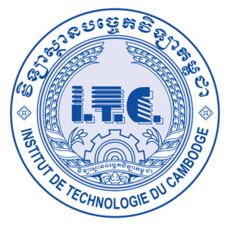(MSS Unit)Materials Science and Structure

Cambodian Context
Cambodia has a long history of engineering skills in materials and structures. Looking back at Angkorian times, the Khmer empire built a considerable amount of constructions in bricks and sandstone: religious buildings, bridges, dams (barray), some of them now in a bad state because of the deterioration of the materials and damages to the structures. The preservation of Khmer heritage is an important issue for the tourism industry and Cambodian universities have an important role to play to develop solutions.
In the present days, new challenges have to be met: the construction sector has boomed in 2016 with a total investment of 8.5 b$. There are over 900 high-rise buildings (more than 5 floors), the majority of them in Phnom Penh. This fast evolution of Cambodian cities causes issues of quality (qualified human resources, redefining building standards) and of sustainability (depletion of local resources in construction materials).
Research in materials science and structures for civil engineering is needed in order to develop eco-friendly concrete or building components adapted to local resources, but also to study and reinforce the stability of embankments, dams, slopes, especially in a context of variable conditions of soils between the rainy and the dry season.
But materials science is not limited to the building industry, as there are also big challenges in recycling or recovering materials from waste, replacing polymers from fossil origin with biopolymers, and producing sustainable products from local materials.
Materials Science and Structure Research Unit was established to build up researcher group with the same skill and work with other researcher groups as interdisciplinary to create new materials and structures which serve for various applications.
The Research Unit
The Material sciences and Structures Research Unit focuses on the innovation and trends in construction material, especially with low carbon impact materials and light structures, including geotechnical engineering, underground structures, roads, embankments, … to address specific Cambodian needs.
The whole set of available natural materials in Cambodia (silk, wood, agricultural by-products, starch, bamboo, clay, limestone,…) is also reconsidered to produce sustainable goods and products. The Research Unit works among an international network on heritage preservation with a specific dedication on materials science (sandstones, ceramics, iron, bronze, …). An important effort is made on modelling and simulations with high standards numerical tools associating mechanics, heat transfer and fluid mechanics.
Vision
MSS Research Unit will be nationally and internationally recognized for one of the first destination for education and research in materials and structure by industries and academic institutions. MSS Research Unit will be a source for technical innovation transfer, scientists and engineers.
Mission
• To strengthen research capacity in field of materials and structure
• To enlarge and improve Materials and Structure laboratory
• To boost the research activities through local and international collaborations (Universities, Government, SMEs, NGOs)
• To promote technology transfer and provide training and consultancy services
• To increase national and international publications
• To host scientific events
Research Theme
• Numerical modelling and experimental analysis of infrastructure and materials
• Polymer composites and plastic waste recycling, eco-materials for construction (concrete, binder…)
• Failure analysis of steel structure
• Soil improvement for various applications using binder and waste products
• Slope stability analysis and deep excavation
• Heritage preservation (structure, source of rock…)
Projects and Research Topics
Table: Research topics in MSS unit for the academic year 2018-2019
|
No. |
Project/Research Topic |
Fund |
|
1 |
Valorization of natural resources and local by-products for the manufacture of sustainable eco-materials |
ITC and BGF |
|
2 |
Development of three points binding fixture for Shimadzu AGX 10 Plus |
Nikko-Kinzoku (Cambodia) Co., Ltd |
|
3 |
Characterization of Bamboo’s properties for telecommunication tower’s structure |
Edotco Cambodia Co., Ltd |
|
4 |
Thermal comfort assessment and enhancement in the lecture rooms of the ITC |
ITC |
|
5 |
Fabrication of passive solar shading for energy saving in glass building |
Government of Cambodia |
|
6 |
Effect on capacity of RC beam and column strengthened with Fibrwrap® system by cyclic exposure to water and salt water |
Fyfe Asia Pte Ltd |
|
7 |
Mechanical properties of RC beam and column strengthened with Fibrwrap® system after being submerged to different exposure solutions |
Fyfe Asia Pte Ltd |
|
8 |
Development of bending and compressive testing fixture for determining mechanical properties of material |
Nikko-Kinzoku |
|
9 |
Initiating scientific investigation to understand and prevent the failure of the Cambodian railway |
Government of Cambodia |
|
10 |
Developing of electrically conductive Nanocomposite paper wood-based Nanocelluloses |
Government of Cambodia |
|
11 |
Development screw pressing machine for monitoring oil extraction |
Pierre Fabre |
|
12 |
Atmospheric corrosion test in Cambodia by considering the effect of environmental parameters |
Pierre Fabre |
|
13 |
Applications of Cambodian natural rubber latex-mineral composites as pillow |
Government of Cambodia |
|
14 |
Development and optimization of ceramic tile using Cambodian clays incorporating with industrial wastes |
Government of Cambodia |
|
15 |
Identification and control of slope failure along Mekong river in Cambodia |
Government of Cambodia |
Researchers
Dr. CHHIT Sao Sameth, Ph.D in Material Engineering, University of Ghent, Belgium
Mateiral Sciences
Dr. HIN Raveth, Ph.D in Material Engineering, University of Rennes 1, France
Mechanical behaviour of Materials, Mechanics and Civil Engineering
Dr. KRUY Sothea, Ph.D. in Engineering, Keio University, Japan
CAD/CAM, Manufacturing system, Integrated design engineering
Dr. HAN Virak, Ph.D in Civil Engineering, KOCHI University, Japan
Civil engineering materials, concrete, modelling
Dr. BUN Kim Ngun, Ph.D. in Materials Engineering, Universiti Sains Malaysia
Materials science, ceramics
Dr. YOS Phanny Ph.D. in Materials Engineering, Kyushu University, Japan
Polymers, composite material
Dr. SEANG Chan Sopheak, Ph.D. in Engineering, INSA de Rennes, France
Non destructive testing, numerical Analysis, welding
Dr. CHEA Savuth, Ph.D in Civil Engineering, INSA de Rennes, France
Non destructive testing, pavement, deflectometry
Dr. PROK Narith, Ph.D in Civil Engineering, KOCHI University, Japan
Soil-structure interaction; earthquake; tsunami
Dr. RATH Sovann Sathya, Ph.D in Civil Engineering, KOCHI University, Japan
Self-compacting concrete
Dr. SRY Vannei, Ph.D in Materials Engineering, Tokyo Institute of Technologyl Japan
Mechanical properties of Fiber
Ms. BUN Polyka, Master in Applied Sciences, Université Libre de Bruxelles, Belgium
Simulation of thin wall structures
Academic and Research Partners
Universitat de Girona, Spain
INSA de Rennes, France
Université de Paris 13, France
Ecole des mines d'Alès, France
Université Paul Sabatier, Toulouse, France
Kochi University, Japan
Chulalongkorn University, Thailand
Kyoto University, Japan
Cotsen Institute of Archaeology, UCLA, USA
Ecole Française d'Extrême Orient, France
National Museum, Cambodia
Universiti Sians Malaysia
Non-academic partners
Ministry of Education, Youth and Sports, Cambodia
Ministry of Public Works and Transport, Cambodia
Ministry of Culture and Fine Arts, Cambodia
Ministry of Industry and Handicraft, Cambodia
Ministry of Mines and Energy, Cambodia
CDRI (Cambodia Development Resource Institute)
Ministry of Environment, Cambodia
General Directorate of Rubber, Cambodia
Industrial Partners and NGOs
Dassault Systèmes, France
Minebea (Cambodia) co.ltd
Edotco Cambodia Co.,Ltd
Nikko-Kinzoku (Cambodia) Co.,Ltd
Fyfe Asia Pte Ltd, Singapore
Pierre Fabre

